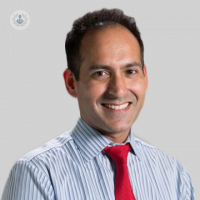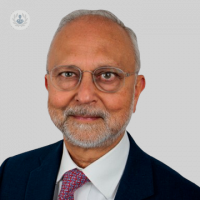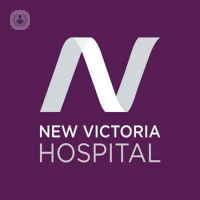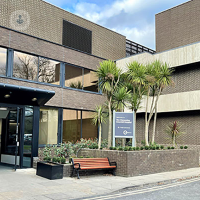What age group is generally most affected by instability and falls?
Generally speaking, the elderly population are at a higher risk of suffering from instability and falls, due to their decreasing mobility and decreasing muscle strength.
What are the statistics surrounding instability and falls?
Unsteadiness and falls are considered to be one of the biggest problems facing older people, generating frequent problems in the care of the elderly. International statistics show that about 1/3 of people aged 65 and over living at home suffer a fall each year and, of these, about 1 in 40 have to be admitted to hospital as a direct result of the fall.
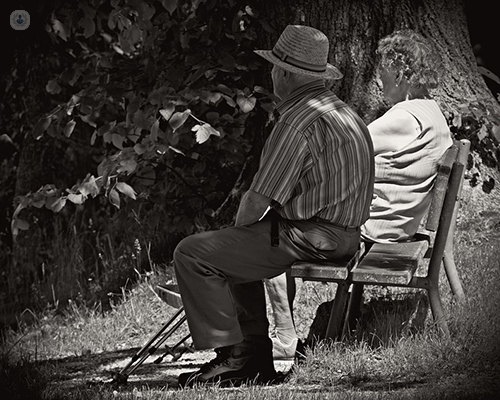
What are the main risk factors?
Of course, anyone can fall, whether it be due to a simple loss of balance, tripping over an untied shoelace, or perhaps misjudging a step on a staircase.
However, older people are typically more susceptible to experiencing falls, particularly if they are suffering from a health condition. People who have Parkinson's disease or multiple sclerosis, but to mention a few, are at a particularly high risk of experiencing instability and falls.
Other health conditions that can cause instability and falls include the following:
- vision impairment
- muscle weakness
- balance problems
- heart disease
- dementia
- low blood pressure
- dizziness
How can one prevent a fall at home?
Although instability is mainly influenced by health conditions that, in the majority of cases, cannot be improved, falls can certainly be avoided at home.
People should follow the following measures to reduce their chances of falling at home:
- use non-slip mats in the bathroom, particularly in the shower or bath
- make sure all spills on the floor are dried up quickly
- remove clutter
- avoid lifting heavy objects wherever possible
People can also reduce their chances of instability and falls by scheduling regular eye tests, doing strength and balance-focused exercises, and also going for an electrocardiogram to check their blood pressure.
What specialists can help treat instability and falls in the elderly?
Geriatricians are the experts when it comes to treating and dealing with instability and falls, particulalry in the elderly.
01-23-2013 09-13-2023Instability and falls
Dr Sushen Bhattacharyya - Geriatrics
Created on: 01-23-2013
Updated on: 09-13-2023
Edited by: Carlota Pano
What age group is generally most affected by instability and falls?
Generally speaking, the elderly population are at a higher risk of suffering from instability and falls, due to their decreasing mobility and decreasing muscle strength.
What are the statistics surrounding instability and falls?
Unsteadiness and falls are considered to be one of the biggest problems facing older people, generating frequent problems in the care of the elderly. International statistics show that about 1/3 of people aged 65 and over living at home suffer a fall each year and, of these, about 1 in 40 have to be admitted to hospital as a direct result of the fall.

What are the main risk factors?
Of course, anyone can fall, whether it be due to a simple loss of balance, tripping over an untied shoelace, or perhaps misjudging a step on a staircase.
However, older people are typically more susceptible to experiencing falls, particularly if they are suffering from a health condition. People who have Parkinson's disease or multiple sclerosis, but to mention a few, are at a particularly high risk of experiencing instability and falls.
Other health conditions that can cause instability and falls include the following:
- vision impairment
- muscle weakness
- balance problems
- heart disease
- dementia
- low blood pressure
- dizziness
How can one prevent a fall at home?
Although instability is mainly influenced by health conditions that, in the majority of cases, cannot be improved, falls can certainly be avoided at home.
People should follow the following measures to reduce their chances of falling at home:
- use non-slip mats in the bathroom, particularly in the shower or bath
- make sure all spills on the floor are dried up quickly
- remove clutter
- avoid lifting heavy objects wherever possible
People can also reduce their chances of instability and falls by scheduling regular eye tests, doing strength and balance-focused exercises, and also going for an electrocardiogram to check their blood pressure.
What specialists can help treat instability and falls in the elderly?
Geriatricians are the experts when it comes to treating and dealing with instability and falls, particulalry in the elderly.


Geriatric care: managing faints, falls and funny turns
By Dr Tarun Solanki
2025-01-25
Around 30% of people over the age of 60 are expected to experience a significant fall in one year and as they get older, this increases to 40%. Falls and funny turns can not only lead to serious physical injury but can also leave a devastating psychological impact on the person. Dr Tarun Solanki, a top consultant physician in general and geriatric medicine, explains more. See more
Experts in Instability and falls
-
Dr Sam Qureshi
GeriatricsExpert in:
- Instability and falls
- Stroke
- Comorbidity
- Transient ischaemic attack (TIA)
- Geriatric medicine
-
Dr Sushen Bhattacharyya
GeriatricsExpert in:
- Geriatric medicine
- Syncope
- Dementia
- Instability and falls
- Osteoporosis
- Cognitive stimulation therapy
-
Dr Dhanupriya Sivapathasuntharam
GeriatricsExpert in:
- Geriatric medicine
- Instability and falls
- Osteoporosis
- Dementia
- Comorbidity
- Memory disorder
-
Dr Frederick Boyle
GeriatricsExpert in:
- Stroke
- Transient ischaemic attack (TIA)
- Hypertension (high blood pressure)
- Instability and falls
- Geriatric medicine
- Syncope
-
Dr Anand Mehta
GeriatricsExpert in:
- Parkinson's disease
- Dementia
- Instability and falls
- Alzheimer's disease
- Chronic pain
- Geriatric medicine
- See all

New Victoria Hospital
New Victoria Hospital
184 Coombe Lane West, Kingston upon Thames, KT2 7EG
No existe teléfono en el centro.
By using the telephone number provided by TOP DOCTORS, you automatically agree to let us use your phone number for statistical and commercial purposes. For further information, read our Privacy Policy
Top Doctors

The Clementine Churchill Hospital - part of Circle Health Group
The Clementine Churchill Hospital - part of Circle Health Group
Sudbury Hill, Harrow HA1 3RX
No existe teléfono en el centro.
By using the telephone number provided by TOP DOCTORS, you automatically agree to let us use your phone number for statistical and commercial purposes. For further information, read our Privacy Policy
Top Doctors

Cleveland Clinic London Hospital
Cleveland Clinic London Hospital
33 Grosvenor Place, SW1X 7HY
No existe teléfono en el centro.
By using the telephone number provided by TOP DOCTORS, you automatically agree to let us use your phone number for statistical and commercial purposes. For further information, read our Privacy Policy
Top Doctors
-
New Victoria Hospital
184 Coombe Lane West, Kingston upon Thames, KT2 7EG, South LondonExpert in:
- Cardiology
- General Surgery
- Orthopaedic surgery
- Breast augmentation
- Pain management
- Spine
-
The Clementine Churchill Hospital - part of Circle Health Group
Sudbury Hill, Harrow HA1 3RX, West LondonExpert in:
- Abdominal ultrasound
- Abdominoplasty
- Acne
- Allergies bronchopulmonary
- Allergies nose and ears
- Allergy Dermatitis
-
Cleveland Clinic London Hospital
33 Grosvenor Place, SW1X 7HY, Central LondonExpert in:
- Cardiology
- Colorectal surgery
- Minimal access surgery (keyhole surgery)
- Gallbladder surgery
- Diagnostic Imaging
- Ultrasound
- See all
- Most viewed diseases, medical tests, and treatments
- Respiratory infection
- Osteoporosis
- Trigeminal neuralgia
- Narcolepsy
- Snoring
- Polysomnography (sleep study)
- Alzheimer's disease
- Cluster headaches
- Tension headache
- Chronic headache

